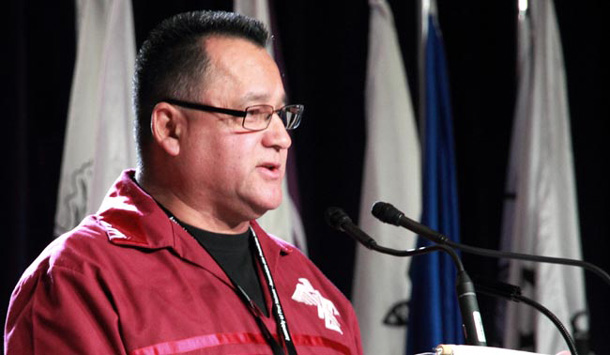
THUNDER BAY – Anishinabek Nation Grand Council Chief Patrick Madahbee says that the Anishinabek Nation is standing with the Iroquois Caucus opposing the transporting of radioactive liquid through Anishinabek Nation and Iroquois Territories.
“We assert inherent ownership of the water and jurisdiction within our regions and traditional territories,” says the Grand Council Chief of 40 Anishinabek First Nations. “We will stand with our Iroquois allies to protect the drinking water. Water is the lifeblood of Mother Earth. Why would we put our precious resource in jeopardy? A spill into any of the waterways would have a tremendous impact on the Great Lakes. Millions of people would be affected – on both sides of the border.”
The transport of radioactive liquid waste could pose substantial threats to the environmental and human health as hazardous materials and waste cannot be disposed of by common means. It has the potential to cause contamination to the largest fresh water supply in the world which provides drinking water to approximately 40 million people.
The plan is to truck 23,000 litres of highly radioactive liquid from Chalk River, Ontario across the international border to the Savannah River Site, South Carolina, using public roads and bridges.
In 2010, Anishinabek Chiefs in Assembly passed resolutions opposing the exporting and storage of nuclear waste across the Anishinabek Nation to other provinces or countries by either land or water.
Anishinabek First Nations are the caretakers of the land, water air and resources within our regions and traditional territories.
“Our water technicians will be monitoring this development closely as the Great Lakes water quality is so critical to the Anishinabek Nation. Transporting nuclear waste poses too much risk,” says Madahbee.
According to the United Nations Declaration on the Rights of Indigenous Peoples – to which Canada is signatory – States shall take effective measures to ensure that no storage or disposal of hazardous materials shall take place in the lands or territories of indigenous peoples without their free, prior and informed consent.






